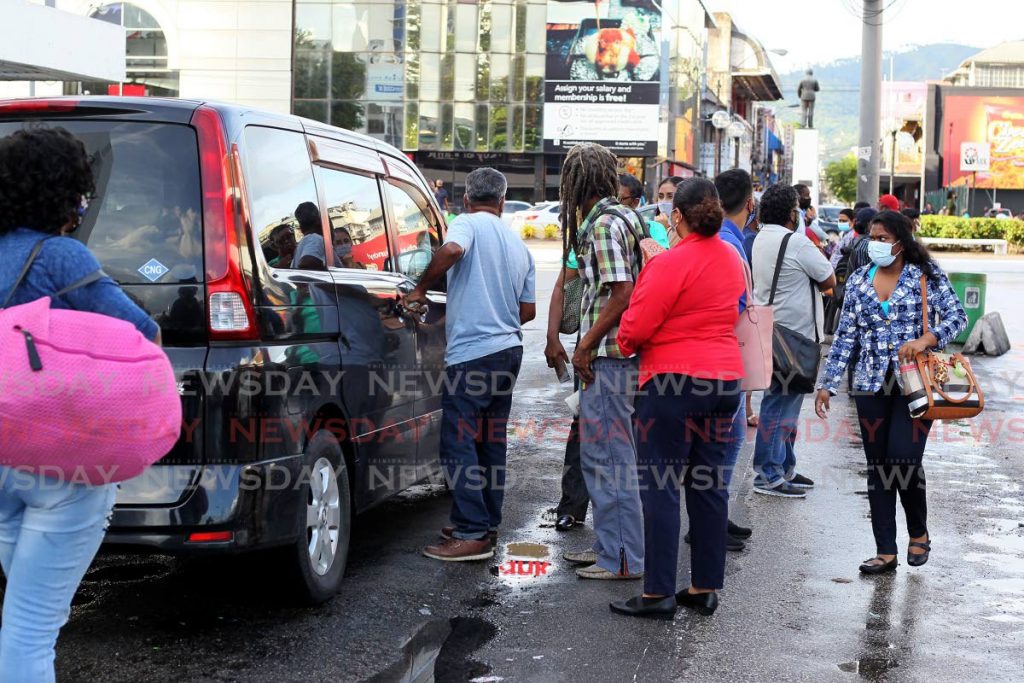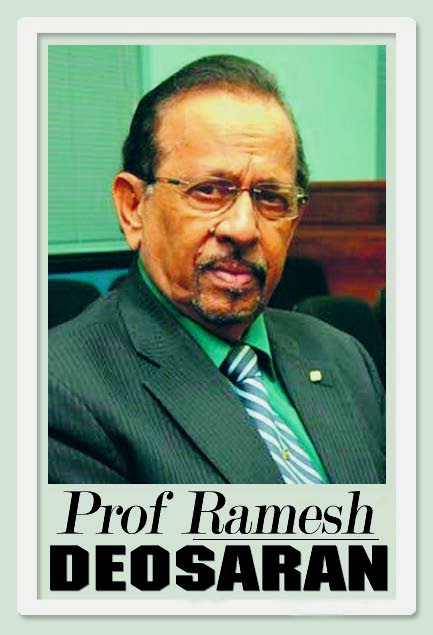PH and squatting enigma

Once again, the controversial subject of PH taxis has jumped upon us. Like squatting, street-vending and potholed roads, the PH enigma has become a never-ending story of public life, allowed to lie lawlessly silent only to be awakened when violence or death explodes from it.
Such was the case with the tragic death of 18-year-old Ashanti Riley of Santa Cruz. The grief of parent, relatives and the public over her death seemed to have attracted greater sorrow as it was reportedly committed in a PH taxi.
Look, unlawful as it is, the PH passenger service is here to stay, and loudly calling for making it lawful one way or another. It makes enemies of licensed taxi drivers, trespasses on taxi stands, often “stealing” passengers. Year after year, loud cries have been made against the PH practice.
Last week, following Ashanti Riley’s tragic death, president of the TT Taxi Drivers Network Adrian Acosta declared: “It seems this is a subject no one in authority wants to deal with. We taxi drivers go through a rigorous process in order to be a taxi driver.
"We want procedures in place to legalise PH drivers.”
The lack of proper insurance for PH passengers remains a dangerous risk.
Now, it is well known PH drivers go in back streets and hilltops where neither bus nor taxis go. And these drivers, many of them part-time, are often well known to the poor, working-class residents, including squatters. PH taxis have become part of life, living and working.
PH driver Marlon Ralph explained last week: “There are several advantages of operating PH, both for drivers and passengers. A lot of times we drop our passengers straight to their doors.” He added that while most taxis do not work at nights, PH drivers “fill the void at night.”
Briefly, from the point of socio-economic need and its widespread practice, PH taxis should now be upgraded from being an “underground” industry to a formalised system of transport. Compel them to be licensed with adjusted insurance under a two-tier system, painted and zoned accordingly and leaving allowance for Uber-type calls. Appropriate number plates and passenger-seat badges should also be installed to help passenger safety.
Lawfulness has been so neglected that while we once had “rented” cars with legally-installed R-number plates, today cars are publicly rented with P-number plates. Is this lawful? And what about Minister Rohan Sinanan’s repeated promise of having government-driven licence plates rather than the street-corner overnight number plates we now have? Don’t all this facilitate crime?
Please, PM Dr Rowley, drive the change. Activate Section 53 of the Constitution: “Parliament may make laws for the peace, order and good government of TT.”
PH taxis, like unlawful squatting, has received a high degree of political and police tolerance. Several attempts to “regularise” squatting have become a hit-and-miss policy, even disrespecting the 1998 cut-off year. Today, regional corporations, the Land Settlement Agency, Town and Country Planning, all have seemingly given up. The authorities have yet to find the exact number of squatters and PH taxis.
Squatters now fence the grabbed land with Beware of the Dog signs. One story I heard from the Toco/Valencia area is how one squatter not only fenced the grabbed land but put up No Trespassing signs, quoting the relevant chapter in law.
This squatting epidemic is not merely about “poor people can’t afford land and house.” There is that, but there has also been growth in land-grabbing corruption, similar to the corruption with HDC houses. Many who already have land and house go on to grab land, and even sell it.
The right to and possession of land have always been politically troubling. What we have by common agreement is, firstly, citizens must take it upon themselves to work, buy/rent land and build their own house, no matter how small. Matters of welfare and subsidy support, mortgage, etc, for those who reliably cannot initially afford such are handled by government through public taxation.
But there should be a limit. A “little squatting” and few PH cars 60 years ago have now become “new normals,” pushing one government after another on the politically defensive. And making the police appear as enemies of the people when rule enforcement is applied. What enigmas!


Comments
"PH and squatting enigma"